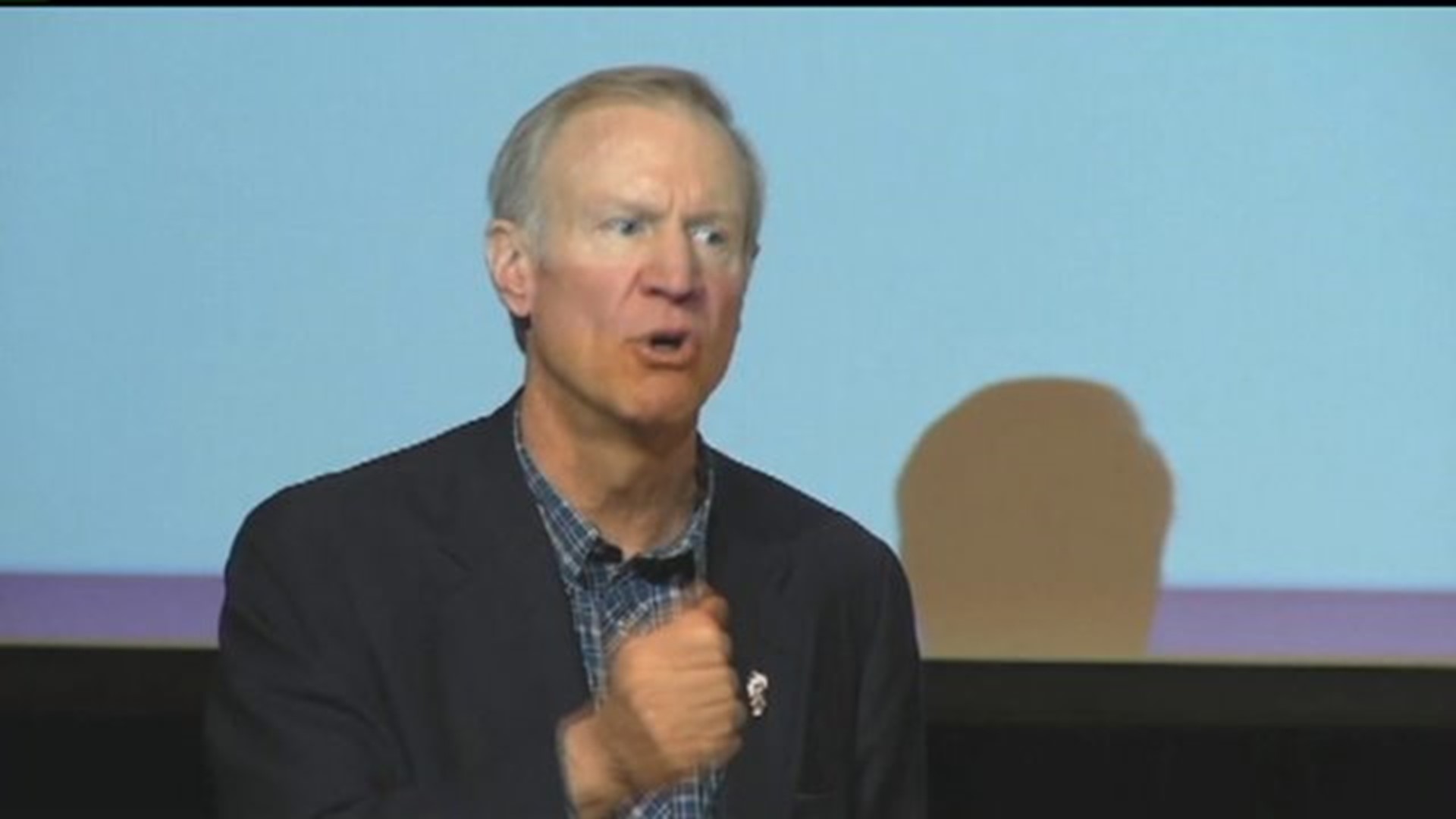In his speech in Decatur, Illinois on Tuesday, Illinois Governor Bruce Rauner said "right-to-work zones" are a priority for his first year in office.
"I want local voter control of this issue so we can have economic empowerment and employee empowerment zones," said Rauner.
Rauner said right-to-work laws would allow community leaders to decide what's best for the workers in their area and wouldn't force them to pay union dues in order to keep their jobs.
"I believe in local voters being able to decide these issues. We don't have to force one policy across the state, give local voters a choice," said Rauner.
That voice, the Governor said, will help make Illinois more business friendly and attract job creators.
However, many union members in Rock Island County, think the proposal will only hurt the 33,000 union members there now.
"He's proposing right-to-work, but what it really means is the right to work for less money," said Dino Leone, President of Quad City Federation of Labor. "What it basically is, is an attack on workers rights to have a stronger voice in the state of Illinois."
There are conflicting studies about the impact of right-to-work laws.
The Illinois Policy Institute said they analyzed data from the federal Bureau of Labor Statistics and found that states with right-to-work laws have higher wages, lower unemployment rates, and higher GDP growth.
However, a similar study done by the University of Illinois in 2014 found the laws actually cut wages by three percent on average.
"It would mean a lot less pay for the middle class and working class for people in the Quad Cities," said Leone. "We will definitely oppose every measure, every piece of legislation [Gov. Rauner] tries to put out on this."
Rauner did not give any specific dates or locations for the right-to-work laws to go into effect, but he is expected to speak more on the matter during his State of the State in February.

